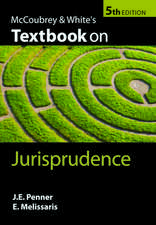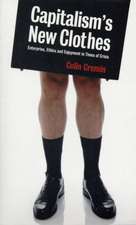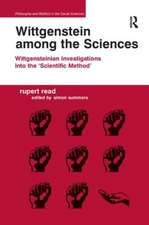The American Ideology: A Critique: Pathways Through the Twenty-First Century
Autor Andrew Levineen Limba Engleză Hardback – 10 iun 2004
| Toate formatele și edițiile | Preț | Express |
|---|---|---|
| Paperback (1) | 444.62 lei 6-8 săpt. | |
| Taylor & Francis – 10 iun 2004 | 444.62 lei 6-8 săpt. | |
| Hardback (1) | 1219.65 lei 6-8 săpt. | |
| Taylor & Francis – 10 iun 2004 | 1219.65 lei 6-8 săpt. |
Preț: 1219.65 lei
Preț vechi: 1487.38 lei
-18% Nou
Puncte Express: 1829
Preț estimativ în valută:
233.42€ • 241.83$ • 194.80£
233.42€ • 241.83$ • 194.80£
Carte tipărită la comandă
Livrare economică 21 martie-04 aprilie
Preluare comenzi: 021 569.72.76
Specificații
ISBN-13: 9780415945493
ISBN-10: 0415945496
Pagini: 184
Dimensiuni: 152 x 229 x 17 mm
Greutate: 0.5 kg
Ediția:New.
Editura: Taylor & Francis
Colecția Routledge
Seria Pathways Through the Twenty-First Century
Locul publicării:Oxford, United Kingdom
ISBN-10: 0415945496
Pagini: 184
Dimensiuni: 152 x 229 x 17 mm
Greutate: 0.5 kg
Ediția:New.
Editura: Taylor & Francis
Colecția Routledge
Seria Pathways Through the Twenty-First Century
Locul publicării:Oxford, United Kingdom
Notă biografică
Andrew Levine is Professor of Philosophy at the University of Wisconsin, Madison. He is the author of many books, including Engaging Political Philosophy (2001) and A Future for Marxism? (2003).
Cuprins
Preface Foreword INTRODUCTION Left, Right and Center The American Ideology A Democratic Alternative 1. REASON The Idea of Reason The Death of Socrates Is Reason Bad for the Oppressed? 2. IDEOLOGY Natural Selection The Spirit of Capitalism The Protestant Ethic An Optimal Ethic Weber's Lead 3. MEANS-ENDS RATIONALITY The Individual and Society The New Science Hobbesian Sovereignty Optimality Utilitarianism Efficiency Macro-Level Consequences of Micro-Level Choices 4. THE INVISIBLE HAND Smith Was (Partly) Right Market Socialism Information Deficits Shades of Hayek Externalities Market Incompetences Competition Economies of Scale 5. EFFICIENCY AS IDEOLOGY Efficiency and the Soviet Model Problems of Planned Economies Market Solutions? Efficiency Reified Who Benefits? A Vicious Circle 6. THE REASONABLE Liberalism From Tolerance to Neutrality The Neutral and the Reasonable Social Unity Reasonableness 7. DELIBERATIVE DEMOCRACY Collective Choice Rousseauean Theories Proceduralism Rousseau Without the General Will Implementation Must We Retract Democracy In Order to Save It? 8. WHICH WAY FORWARD? Deweyan Reconstruction Democratizing the Economic Sphere Reconstructing Rawls What Is To Be Done?
















